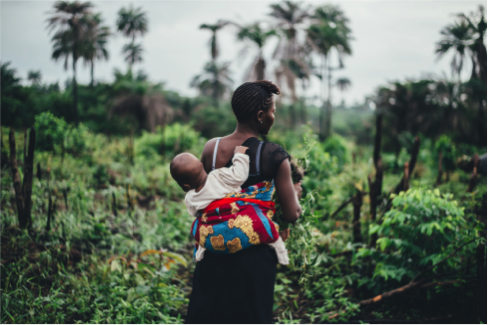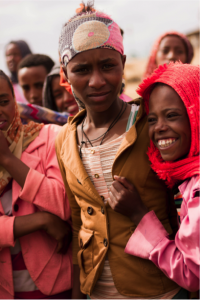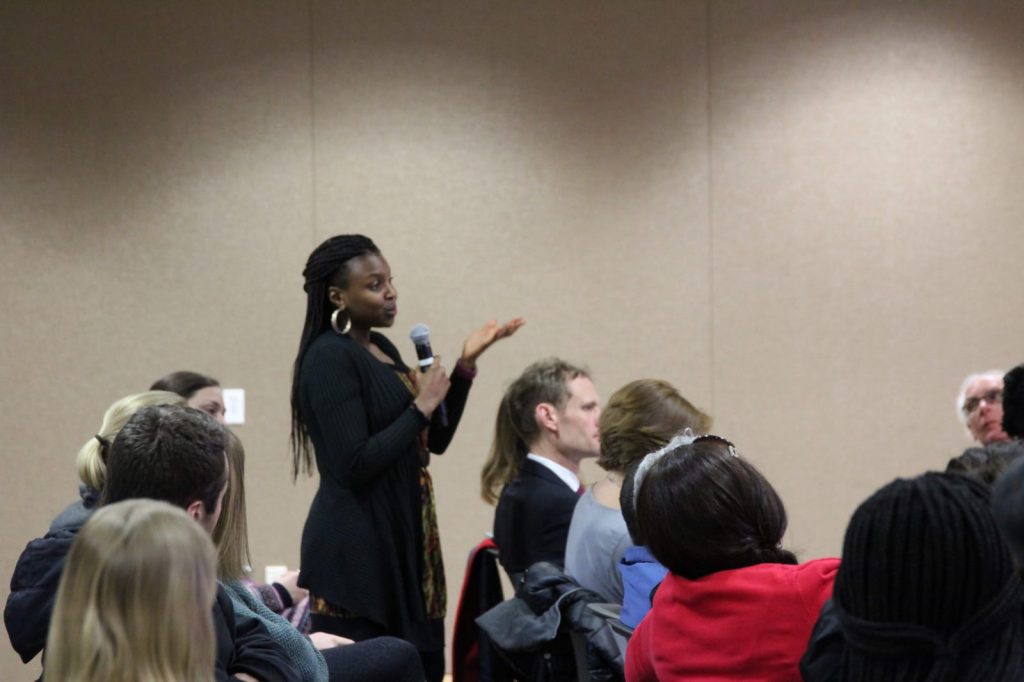A Path Towards Women’s Socio-Economic Empowerment in Chad

Julian Uribe, Research Fellow, Youth, Gender & Vulnerability Policy Lab
juribe@africacfsp.org
The Sahel Women’s Empowerment and Demographic Dividend Project is a region-wide initiative by the World Bank to engage various national actors in women’s rights issues and bolster a demographic dividend in the Sahel. This piece studies first-hand accounts in Chad and academic sources to assess the risk of financial dependency developed by such initiatives towards sustainable community development. Additionally, the article examines the collective relationship between international actors, national governments, and locally run associations such as Focus International towards sustainable economic and political autonomy for Chadian women.
Skills Training and Socio-Economic Development
According to statistics from the United Nations Population Fund, 67% of women in Chad are married off before the age of 18, and only one in eight girls is enrolled at the secondary school level. Chad recognizes these discrepancies as barriers to the prosperity of the nation.
Am Timan, a city in Chad’s southwestern Salamat region, is home to Adouia Brema an electrician who was once a child bride. Through the Sahel Women’s Empowerment and Demographic Dividend Project (SWEDD), Ms. Brema enrolled in an electrician course. She now trains other women in her community in electrical work.
SWEDD is a regional, multi-lateral project that formed in 2013 and is projected to run until 2024. SWEDD provides countries in the Sahel with financial assistance through grants and loans. The program intends to engage women in the formal economy, increase school enrollment rates for young girls, and expand access to healthcare services. To assess the success of the initiative for women on the ground, it is fair to consider the results in local and national contexts. At the local level, beneficiaries like Ms. Brema contribute to Am Timan’s formal economy through electrical work and vocational (trainer) work. SWEDD has provided Ms. Brema an opportunity to open and operate her own business. Her work has a direct impact on the development of her community through the use of solar panels, “You get electricity day and night. Children use it all the time.” What she thought was solely a ‘man’s job,’ is now being practiced by many other local women. Taking Ms. Brema’s positive evaluation of the program, it appears that SWEDD’s efforts are a positive development towards women economic emancipation in Am Timan.
A Fragile Dependency?
SWEDD provided Chad and Ms. Brema with the financial resources to help establish her business and training program, but at the cost of indebtedness to the World Bank. Financial assistance through million-dollar loans risks developing a cycle of financial domination by Western institutions. In 2020, Chad’s budget included, “a forecast deficit of 117 billion CFA francs (USD 210 m) that should be financed by external support and bank financing.” This is in addition to an additional USD $181 million loaned from the World Bank. Project indicators from SWEDD demonstrate increased enrollment numbers for vocational training and access to reproductive healthcare.
However, while it can be considered a start to greater autonomy for women, Chad should take more initiatives to lead the country towards sustainable socio-economic development for its female and youth populations and not leave it to SWEDD alone. Despite its benefits, an effect of this method of development fails to consider countries like Chad as forming part of the world economy. Embedded in SWEDD are Western frameworks of development, which overlook local cultural values, rendering them dependent on foreign aid.

Local Efforts Towards Women Empowerment
In 1995, the United Nations adopted a comprehensive charter for the advancement of the rights of women across the globe. This charter addresses poverty, education, and healthcare. The United Nations maintains that to date it is the most comprehensive global framework for the rights of women adopted by national governments. Women in Chad have used this global framework to design their local projects, as the charter encourages individuals to implement action plans in their respective communities.
Doudji Hapsita Madjiré is president of Focus International, a nonprofit women’s rights organization based in N’Djamena, Chad. On July 10th, 2020, a consortium of several women-led organizations gathered to discuss plans to carry out trainings, campaigns, and awareness-raising caravans on the issue of political rights in favor of women. The objective was to draw the government’s attention to gender-based violence and other socio-economic barriers preventing the greater autonomy of Chadian women. “What really touched us in carrying out awareness campaigns are the cases of rape of women and girls in the provinces and in N’Djamena,” explains Madjiré. Such mobilizations from Chadian women encourages national and local governmental actors to adopt gendered perspectives in policymaking.
A Symbiotic Approach to Socio-Economic Empowerment
Despite the complex economic and political issues associated with SWEDD together with efforts made by local organizations like Focus International, there seem to be promising signs of meaningful change in Chad. In both instances, the role of local women is elevated, and their activities are coordinated at the community level. This constitutes a balanced approach to community development through establishment of the foundation for increased involvement of women in the formal economy and civil society. Ms. Brema’s business is an example for other women-led businesses. However, the government of Chad must cooperate with organizations that champion the rights of women like Focus International, and not completely rely on outside entities like the World Bank to achieve long-term sustainable results.
Based on your interests, you may also wish to read:
- Women as Peacemakers in Senegal – Voices To Be Heard
- Kenya Should Adopt Comprehensive Sexuality Education to Address the Vulnerability of Girls to Early Pregnancies
- COVID-19, Youth and Tech: The Chance to Build a Resilient Nigerian Economy?
- The Socio-economic and Cultural Response to COVID -19 By Women in The Gambia


